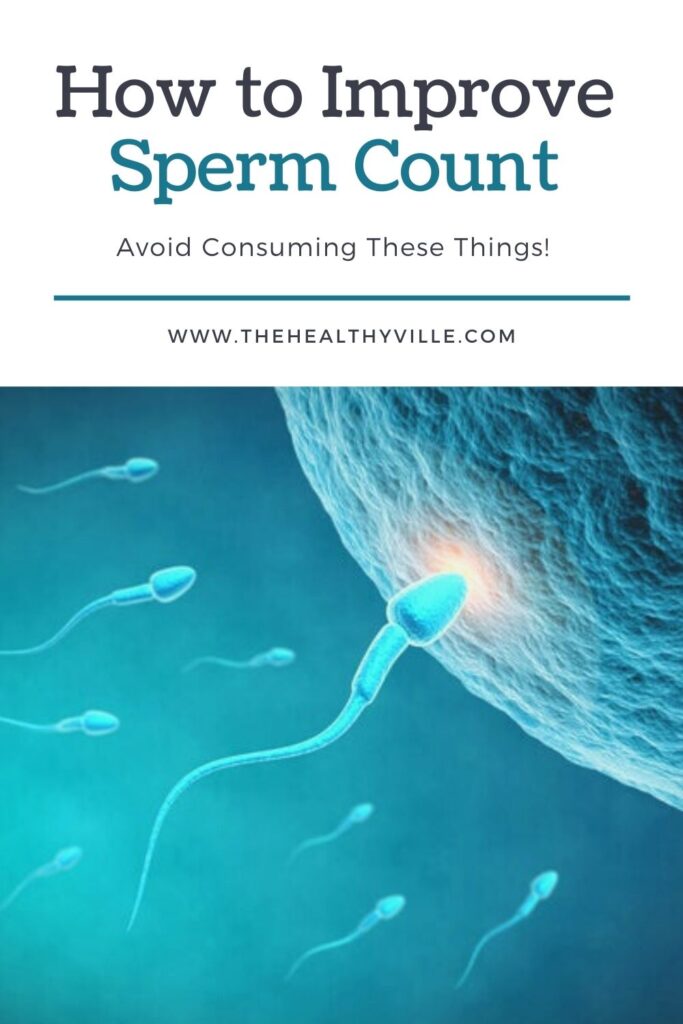How to improve sperm count? Well, Alcohol, zinc deficiency, and simple sugars appear to negatively influence sperm quality. Discover how to improve your diet to increase fertility.
Fertility is directly related to diet and lifestyle. Drinking alcohol and having an inadequate diet can influence the quality of the sperm, and therefore, the reproductive success.
To avoid this situation, it is recommended to maintain healthy eating guidelines, emphasizing the consumption of fish and vegetables. At the same time, it is necessary to reduce the intake of ultra-processed and increase physical activity.
How to improve sperm quality and increase fertility?
There are three factors that affect the production of healthy sperm count in your body. The lack of some micronutrients, the consumption of alcohol and sugar can seriously affect your sperm count. Learn why!
Alcohol reduces sperm quality
Alcohol is a substance that negatively affects the body. In addition to inducing a transitory cognitive impairment, it increases the risk of developing complex diseases in the medium and long term.
Consuming this substance on a regular basis can take you to a worse state of health. Also, according to research published in the journal Reproductive Biomedicine Online, regular alcohol intake reduces sperm volume.
It is necessary to take into account that for fertilization to occur, a minimum number of sperm must reach the female reproductive system. If the volume of sperm expelled is reduced, so does the number of cells available from fertilization. For this reason, reproductive success is diminished.
Micronutrients affect sperm motility
The appearance of pathologies in the medium or long term is greatly connected with the deficit in some micronutrients in your body. A typical example is that of anemia due to the lack of iron. However, the sperm also suffers if the intake of these nutrients is not adequate.
Specifically, the quality, volume of the semen and the mobility of the sperm it contains are directly in relation to the dietary intake of zinc. Presenting low levels of this micronutrient affects sperm production and quality, and can trigger an infertility problem. This is evident by the study results in the International Journal of Reproductive Biomedicine.
Sugar jeopardizes semen quality
Simple and added sugar is a frequent substance in today’s diet. This ingredient is capable of increasing the risk of developing metabolic diseases. On the other hand, when non-athletes consume it, it can cause obesity.
In addition, the intake of simple sugar is related to a reduction in sperm quality. This situation conditions reproductive success and can generate temporary infertility.
Fortunately, improving dietary habits as far as the consumption of this substance is concerned, is capable of restoring the normal values of the sperm. In any case, the problem with a poor diet does not only lie in a lower percentage of success when conceiving. Recent research associates poor parental nutrition with poorer offspring health.
Take care of your diet to improve sperm
Lifestyle habits affect both the volume and the quality of the sperm. Diet and frequent physical exercise greatly influence the likelihood of conceiving.
The three factors described here can reduce the volume of sperm and its mobility, which makes the fertilization process difficult.
On the other hand, micronutrient deficiencies in relation with a lower mobility and quality of the sperm present in the semen. Zinc is the most representative of them all. Some infertility processes are in relation with low levels of this substance, so supplementation can be an effective solution.
A varied diet, rich in vegetables and fish, especially if you are looking to conceive a child, is a pillar of the process. In this way, you increase the chances of success. At the same time, you will positively affect the health of your descendants, since the diet of the parents seems to have an effect on the risk of illness in the children.
Don’t forget to SHARE how to improve sperm count with your friends and family on your social networks!

